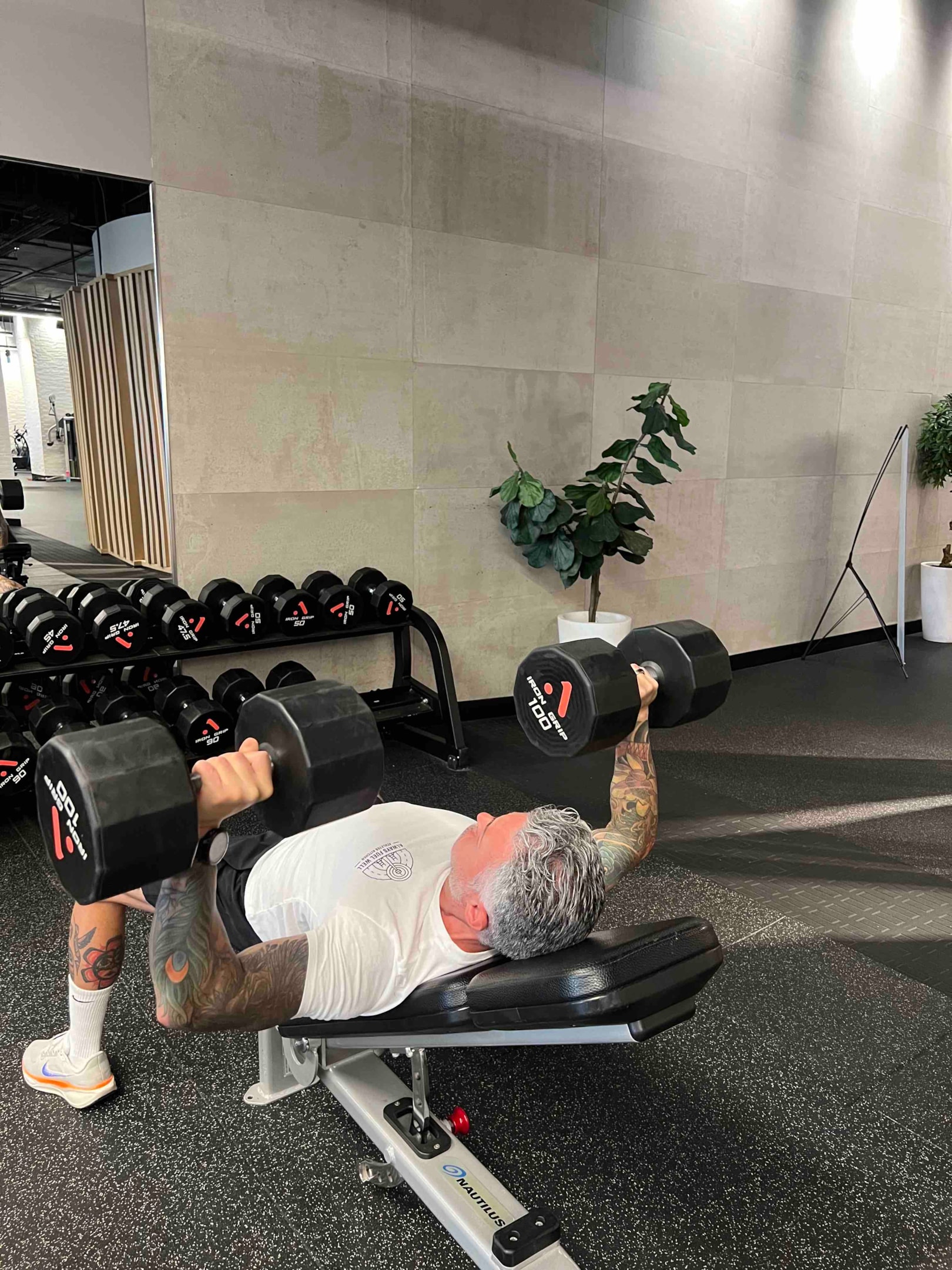Caloric Deficit Diet
The Impact of Macros on Athletes in a Caloric Deficit: A Comprehensive Guide
For athletes aiming for peak performance while in a caloric deficit, understanding the impact of macros on athletes in a caloric deficit—macronutrients—carbohydrates, proteins, and fats—is essential. This article explores how each macronutrient supports energy levels, muscle maintenance, and overall health during calorie restriction. By managing these nutrients effectively, athletes can achieve their weight goals without compromising their performance.
Key Takeaways
- Athletes must maintain a caloric deficit thoughtfully to lose weight without compromising performance or muscle mass, with recommended reductions of 200-300 calories daily.
- Adequate protein intake is essential, with guidelines suggesting 1.6 to 2.2 grams per kilogram of body weight to preserve muscle mass during caloric restriction.
- Effective management of macronutrients—carbohydrates, proteins, and fats—is crucial for energy provision and recovery, with an emphasis on whole food sources and strategic meal timing.
The Impact of Macros on Athletes in a Caloric Deficit: A Comprehensive Guide
A caloric deficit, defined as burning more calories than consumed, is a foundational concept in weight loss. For athletes, achieving this deficit while maintaining performance and muscle mass is a delicate balance. Typically, a healthy weight loss deficit involves reducing calorie intake by about how many calories per day, equating to a weekly reduction of 3500 calories. The duration spent in a caloric deficit is also crucial for reaching desired weight loss goals.
Athletes must calculate their daily calorie needs accurately using methods like the Mifflin-Saint Jeor formula to determine their caloric intake targets. Understanding daily energy intake and expenditure enables athletes to make informed food choices and adjust their macros to support performance.
While it is possible to build muscle in a caloric deficit, it requires a focus on protein-rich foods and adequate nutrition.
Introduction
Achieving a caloric deficit involves eating fewer calories than burned, which can be done by either reducing calorie intake or increasing exercise. For athletes, a combination of smaller calorie deficits and increased physical activity often proves most effective. For instance, reducing daily calorie intake by 200 to 300 calories and supplementing with exercise can create a sustainable and effective calorie deficit.
Maintaining a high protein intake is essential to prevent the loss of lean body tissue during a caloric deficit. Adopting healthy eating patterns, such as the Mediterranean diet, can support performance and recovery while preventing maladaptive changes and eating disorders. Understanding these principles is critical for athletes aiming to balance weight loss with overall health.
Understanding Macronutrients
Macronutrients—carbohydrates, proteins, and fats—are the building blocks of our diet and play vital roles in energy provision, muscle maintenance, and overall metabolic function. For athletes, managing these macronutrients effectively is crucial, especially when in a caloric deficit.
Each macronutrient serves specific purposes that collectively support performance and recovery.
Carbohydrates
Carbohydrates are the primary energy source for endurance athletes, providing the necessary fuel for high-intensity activities. Managing carbohydrate intake carefully is crucial for athletes in a caloric deficit, as it helps maintain performance and energy levels. Consuming carbohydrates before and after exercise is essential for restoring glycogen levels and enhancing recovery.
Whole grains, brown rice, and other complex carbohydrates are excellent sources that provide sustained energy and are rich in vitamins and minerals. Incorporating these into their diet ensures athletes get necessary nutrients while sticking to their calorie goals.
Proteins
Proteins are essential for maintaining lean muscle mass, particularly during periods of caloric deficit. Insufficient protein intake during calorie restriction can lead to muscle loss, which negatively affects performance. Adequate protein intake helps repair muscles after workouts, facilitating recovery and performance improvements.
Athletes should aim for a protein intake of 1.6 to 2.2 grams per kilogram of body weight to preserve muscle mass. It’s also important to spread protein intake throughout the day to maximize muscle protein synthesis and recovery.
Fats
Fats play a critical role in hormone production and brain function, which are essential for athletes’ health and performance. Balancing fat intake is vital to ensure adequate energy without compromising performance. Dietary fats are also important for absorbing vitamins and maintaining overall physiological function.
Healthy fats, such as those found in avocados, nuts, and olive oil, provide essential nutrients and support sustained energy levels. Athletes should include a variety of healthy fats in their diet to meet their energy needs and support overall health.
The Role of Protein in Maintaining Lean Muscle Mass
Protein is crucial for athletes to preserve muscle mass and aid recovery, especially during caloric restriction. Higher protein consumption can significantly aid in muscle mass preservation during energy restriction. Athletes require a minimum protein intake of 2 grams per kilogram of body weight when in a caloric deficit.
Adequate protein intake supports muscle maintenance and prevents muscle loss.
Optimal Protein Intake
Physically active individuals are often advised to consume between 1.2 to 2.0 grams of protein per kilogram of body weight. For athletes engaged in high-intensity training or calorie deficits, the recommended protein intake can go up to 2.0 grams per kilogram of body weight.
Endurance athletes should aim for 1.2 to 1.4 grams per kg of body weight, while strength and power athletes require 1.6 to 1.7 grams per kilogram of body weight.
Timing of Protein Consumption
Distributing protein intake evenly across meals enhances muscle protein synthesis more effectively than consuming it in fewer meals. Consuming 15-25 grams of protein shortly after exercise and every 3 to 5 hours throughout the day optimizes muscle protein synthesis.
This approach ensures a steady supply of amino acids, which are crucial for muscle repair and growth.
Carbohydrate Management for Energy and Performance
Carbohydrates are essential for sustaining energy and enhancing performance, especially when reducing caloric intake. Athletes need to manage carbohydrate consumption carefully to replenish glycogen reserves, crucial for prolonged physical activities.
Timing carbohydrate intake around workouts can significantly influence performance and recovery.
Carb Cycling
Carb cycling involves alternating carbohydrate intake levels, which can help athletes manage energy needs effectively while adhering to calorie restrictions. This method allows athletes to align their energy intake with their training demands, maintaining performance while in a caloric deficit.
Focus on unrefined carbohydrate sources, such as wholegrain breads and cereals, as a foundation for their diet.
Pre- and Post-Workout Carbohydrates
Consuming carbohydrates within 15-30 minutes after exercise is essential for maximizing muscle glycogen restoration. Athletes should aim for a carbohydrate intake of at least 60-90 grams immediately post-exercise to optimize recovery.
High-protein and high-carb snacks, such as Greek yogurt with fruit or nut butter on whole grain bread, are beneficial for athletes, especially when adhering to a calorie-restricted diet.
Healthy Fats for Sustained Energy
Healthy fats play a key role in hormone regulation, brain health, and overall physiological function in athletes. They are also crucial for energy provision and absorbing essential vitamins, supporting overall health, especially during caloric restrictions.
Including healthy fats in the diet can improve energy levels and sustain performance.
Types of Healthy Fats
Monounsaturated fats found in olive oil, avocados, and nuts are recommended for athletes to support their health. Polyunsaturated fats, including omega-3s from fish and walnuts, are beneficial for athletes, particularly for heart health.
Good sources of unsaturated fats include avocados, nuts, olive oil, and fatty fish.
Balancing Fat Intake
For athletes, fat intake should generally make up 20 to 35% of total energy. During a caloric deficit, it is advised to limit fat intake to 15% of total calories. Balancing fat intake ensures athletes meet their energy needs without compromising performance or health.
Combining Macronutrients for Optimal Performance
Athletes should strategically blend carbohydrates, proteins, and fats to enhance both performance and recovery in a caloric deficit. Meals for athletes should ideally combine these macronutrients to support performance and recovery.
Adjustments to macronutrient intake should take into account the athlete’s specific sport and training demands. This dietary strategy may improve body composition and performance when combined with high-intensity workouts.
Meal Composition
A balanced meal for athletes might include egg whites, whole grain toast, and a side of fruit to incorporate all three macronutrients. This combination ensures athletes receive adequate nutrition to support their energy needs and performance goals.
Snack Ideas
Snacks are essential for athletes in a caloric deficit as they help control hunger and provide necessary nutrients without exceeding calorie goals. High-protein snacks such as Greek yogurt, cottage cheese, or protein bars can help maintain muscle mass and support recovery. Incorporating protein-rich nuts or seeds as snacks can also add additional protein to a calorie-restricted diet.
High-carb snacks like whole-grain rice cakes topped with nut butter provide a quick source of energy for athletes. Balancing high-protein and high-carb snacks can effectively support an athlete’s energy needs and recovery while staying within a caloric deficit.
Monitoring Progress and Adjusting Macros
Monitoring macronutrient intake is crucial for athletes to ensure they meet their energy and performance goals while in a caloric deficit. Regular assessments of body composition can help athletes determine the effectiveness of their dietary adjustments.
Athletes must understand their individual energy needs, which change based on training volume and body composition goals, to optimize their athletic performance through sports nutrition.
Tracking Food Intake
Apps like MyFitnessPal and Lose It are popular for effectively monitoring food consumption among athletes. Mobile apps can simplify the process of recording daily food intake and tracking macronutrient ratios efficiently. Visual food tracking, such as photographing meals, can enhance awareness of intake without needing detailed logging.
Athletes are encouraged to maintain a food journal for improved awareness of their eating habits and macro distributions. Tracking food intake is essential for athletes to ensure they meet their macronutrient targets while in a caloric deficit.
Adjusting Based on Results
Athletes should measure body weight 3-4 times per week for accurate tracking during a calorie deficit. During the pretracking period, athletes should aim for intake close to their estimated maintenance for an effective calorie cut. Other methods to measure progress include bi-weekly or monthly measurements and progress photos.
The goal for calorie deficit adjustments should be to lose weight on the highest calories possible to minimize adaptive thermogenesis. Adjustments to calorie intake should be made one at a time for easier tracking of changes.
It’s important for athletes to limit their calorie deficit duration since long-term calorie deficits can negatively affect performance.
Common Challenges and Solutions
Athletes often encounter several challenges when adhering to a calorie-deficit diet. Two common traps are eating too little protein and cutting too many calories at once. These practices can lead to muscle loss, decreased performance, and even yo-yo dieting. For initial calorie deficit cutting, it is recommended to cut a smaller amount of calories to avoid these pitfalls.
If weight loss stalls despite a strict diet and exercise regimen, it is important to seek expert help. Working with a healthcare provider or a registered dietitian can help athletes plan a safe and effective calorie-deficit diet. Factors such as metabolism, existing health conditions, and medications can affect weight loss progress.
Basic blood tests are suggested if facing ongoing weight loss issues.
Dealing with Hunger
Managing hunger is crucial for athletes maintaining a caloric deficit to avoid cravings and ensure adherence to their dietary goals. Incorporating low-calorie, high-volume foods can help athletes feel fuller without exceeding their calorie limits. Examples include vegetables, fruits, and whole grains, which are rich in fiber and can contribute to a sense of satiety.
Mindful eating practices can aid athletes in recognizing hunger cues and making informed dietary choices during a calorie deficit. Integrating low-calorie foods and mindful eating helps athletes manage hunger while maintaining a caloric deficit.
Preventing Muscle Loss
Preventing muscle loss during calorie restriction is a top priority for athletes. After a diet phase, gradually increasing intake to near estimated Total Daily Energy Expenditure (TDEE) can help mitigate muscle loss. Athletes should add 50-100 calories every 1-2 weeks to prevent muscle loss and support gradual adaptation.
Maintaining an active lifestyle and engaging in vigorous exercise can also support muscle retention during calorie restriction. Adequate protein intake and balanced dietary habits are essential for preserving lean muscle mass and ensuring overall health.
Summary
In summary, managing macronutrients effectively while in a caloric deficit is essential for athletes to maintain performance and achieve their weight loss goals. Carbohydrates, proteins, and fats each play crucial roles in energy provision, muscle maintenance, and overall health. By understanding and balancing these macronutrients, athletes can enhance their performance, sustain energy levels, and prevent muscle loss.
Regular monitoring and adjustments based on individual progress are key to a successful calorie-deficit strategy. Tools like food tracking apps and expert guidance can help athletes stay on track and make informed decisions about their diet. By addressing common challenges and adopting effective strategies, athletes can achieve their goals without compromising their health. Stay committed, stay informed, and let your nutrition fuel your success.
Frequently Asked Questions
How much protein should I consume to maintain muscle mass while in a caloric deficit?
To maintain muscle mass while in a caloric deficit, you should consume between 1.6 and 2.2 grams of protein per kilogram of body weight. This range supports muscle preservation effectively during weight loss.
What are some good sources of healthy fats for athletes?
Healthy fats for athletes can be found in avocados, nuts, olive oil, and fatty fish, all of which support hormone production, brain function, and overall health. Incorporating these foods into your diet can enhance performance and recovery.
How can I manage hunger while maintaining a caloric deficit?
To manage hunger while maintaining a caloric deficit, focus on incorporating low-calorie, high-volume foods like vegetables and fruits, and practice mindful eating to better recognize your hunger cues. This approach will help you stay satisfied while achieving your goals.
What is carb cycling, and how can it benefit athletes?
Carb cycling alternates carbohydrate intake to match energy demands during training, benefiting athletes by optimizing energy levels and supporting calorie management. This approach can enhance performance while allowing for dietary flexibility.
How often should I monitor my progress while on a calorie-deficit diet?
To effectively monitor your progress on a calorie-deficit diet, aim to measure your body weight 3-4 times per week, while also incorporating bi-weekly or monthly assessments and progress photos. This approach will provide a comprehensive understanding of your progress.


